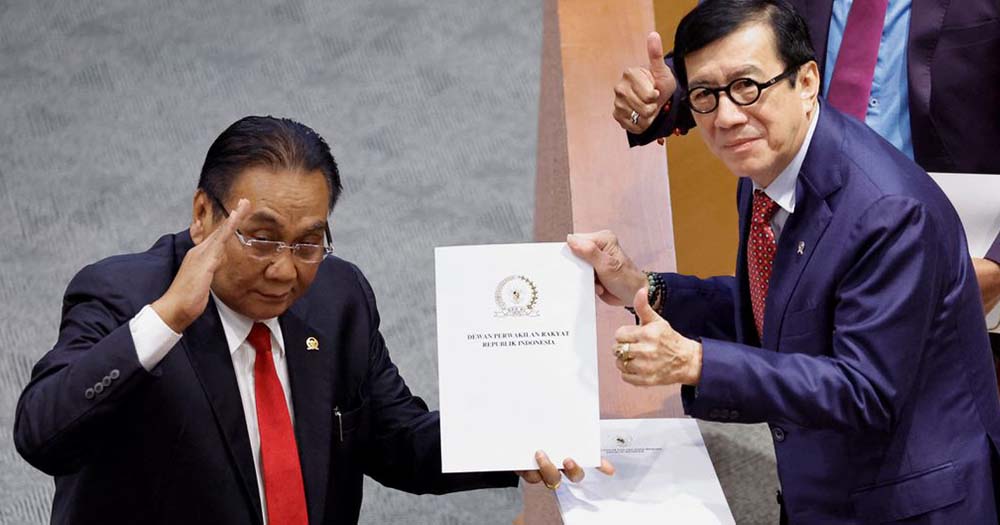Indonesia effectively made LGBTQ+ relationships a crime punishable with jail time on Tuesday, December 6, when parliament unanimously passed a new criminal code.
The new legislation criminalises sex outside of marriage and, since same-sex marriage is not permitted in Indonesia, the new law impacts all LGBTQ+ relationships. Anyone who is reported for breaking the law, including tourists, can face up to one year in prison.
Adultery in Indonesia was previously defined as sex between a married man and someone who was not his wife. The new law criminalises all sex outside of marriage, including between unmarried couples who live together. Charges will be based on police reports filed against a spouse, parent, or child.
These changes to the criminal code come in the wake of a rise in religious conservatism. In addition to restricting sexual relationships, the new law impacts many political and personal freedoms such as free speech and the right to protest.
Indonesia was already labelled by many human rights organisations as a hostile place for LGBTQ+ people. The government previously passed a bill that encouraged the harmful practice of so-called ‘conversion therapy’, which also includes exorcisms on LGBTQ+ Indonesians, and no protections against LGBTQ+ discrimination are in place.
Ajeng, a 28-year-old Muslim woman who has been living with her partner for the past five years, worries about her safety under the new restrictions. She told BBC, “With the new law, both of us can go to jail if one of the family decides to make a police report. What if there’s one family member who has a problem with me and decides to send me to jail?”
Human rights advocates are calling the new law “a disaster” for the world’s third-largest democracy, and the changes will likely negatively impact tourism to high-profile holiday destinations such as Bali.
The new criminal code, which was passed with support from all political parties in Indonesia, is expected to take effect in three years. It was initially scheduled to pass in 2019, but it was delayed after tens of thousands of people took to the streets in nationwide protests that demanded the government withdraw it.
Commenting on the new criminal code, Amnesty International Indonesia director Usman Hamid said: “We are going backwards… repressive laws should have been abolished but the bill shows that the arguments of scholars abroad are true, that our democracy is indisputable in decline.”
“These provisions will make LGBTI Indonesians even more of second-class citizens, even more invisible.” Hamid added.
© 2022 GCN (Gay Community News). All rights reserved.
Support GCN
GCN is a free, vital resource for Ireland’s LGBTQ+ community since 1988.
GCN is a trading name of National LGBT Federation CLG, a registered charity - Charity Number: 20034580.
GCN relies on the generous support of the community and allies to sustain the crucial work that we do. Producing GCN is costly, and, in an industry which has been hugely impacted by rising costs, we need your support to help sustain and grow this vital resource.
Supporting GCN for as little as €1.99 per month will help us continue our work as Ireland’s free, independent LGBTQ+ media.

comments. Please sign in to comment.